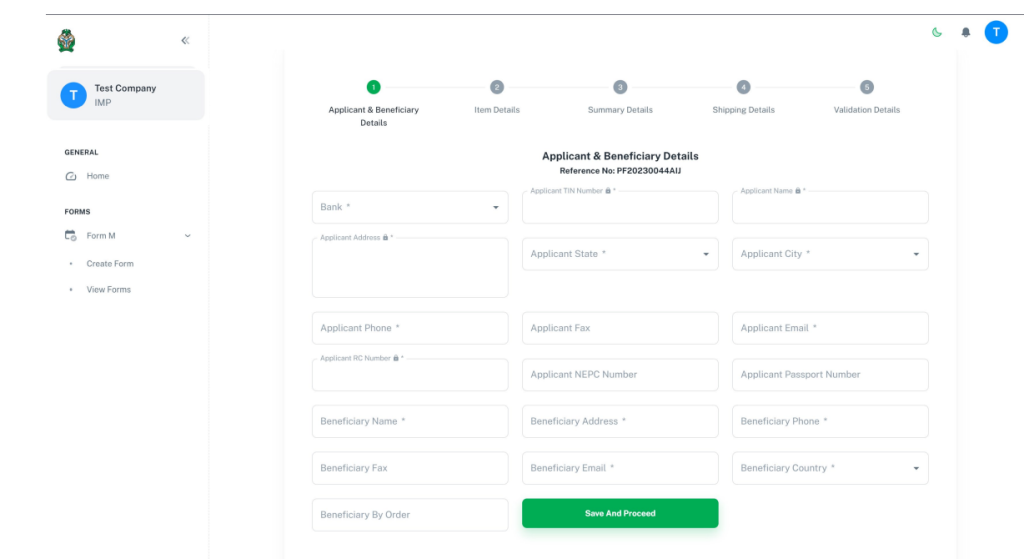Price verification system (PVS) is a system created by the Central Bank of Nigeria (CBN) as a build-up to the controversial e-valuator. Like every new system, the introduction of price verification system has created a lot of confusion. Many importers and exporters are confused what exactly the PVS is. While some are wondering if PVS is a replacement for Form M, others are more interested in who to process price verification.
Table of Contents
ToggleCheck also: FORM M NIGERIA: HOW TO PROCESS AND OBTAIN IT
Consequently, the purpose of this piece of article is to clarify what the price verification system is about. Hence, we will state the reasons for PVS. Equally, we will guide our readers on how to navigate the system. Follow as we journey through the paragraphs below.
WHAT IS THE PURPOSE OF PVS?
According to CBN, the Price Verification System (PVS), is designed for importers to have access to forex. CBN said this announcement on Thursday night following release from the Trade and Exchange Department.
“Following the successful conduct of the pilot run and various trainings held with all the banks, the Central Bank of Nigeria hereby announces the Go- Live of the Price Verification System (PVS),” CBN said.
“Consequently, with effect from August 31, 2023, all applications for Form M shall be accompanied by a valid price verification report generated from the price verification portal.”
“For the avoidance of doubt, by this circular, the price verification report has become a mandatory trade document precedent to the completion of a Form M.”
“All Authorized Dealers are hereby advised to bring this to the attention of their customers as any case of infraction will be appropriately sanctioned.”
Finally, addressing the banks, the CBN concluded “Please ensure compliance.”
PRICE VERIFICATION REPORT: HOW TO PROCESS IT
Importer Registration
- Importers are expected to provide a valid TIN.
- Once TIN is validated, Company Name and RC will be populated.
- Importer should fill all necessary field on the form and click register to proceed.
- Once Registration is successful, Importer can login to the portal with the credentials provided during registration.
Form Creation Process
- Click “Create Form” sub menu under Form M menu item.
- A reference number is automatically generated and displayed.
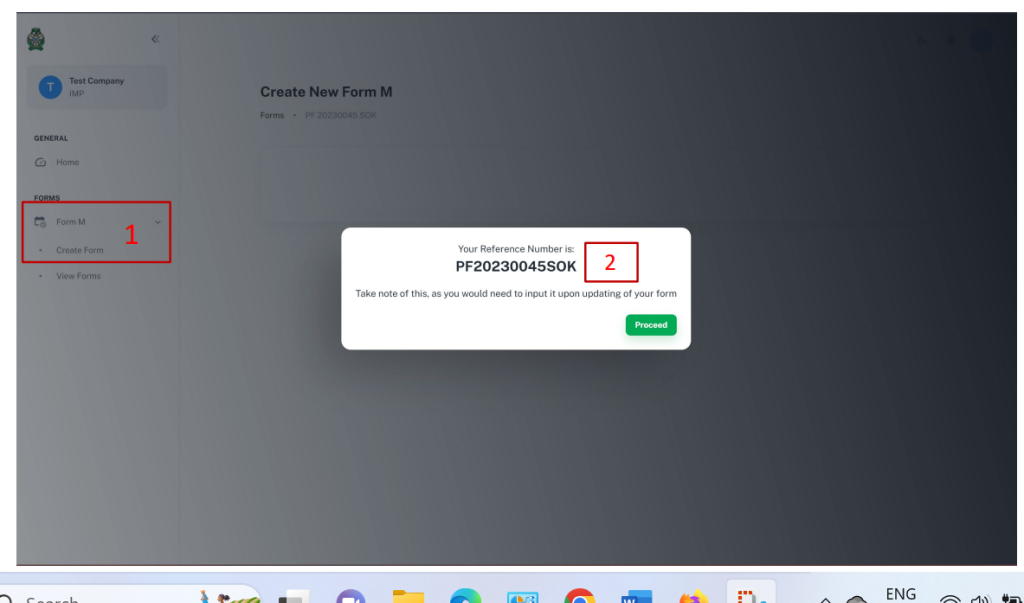
Form Creation Process – Step 1
Step one of form creation is the Applicant and Beneficiary Details page. Kindly fill all compulsory fields on the form and click “Save and Proceed” to continue with form creation.
Form Creation Process – Step 2
Step Two of form creation is the Line Items Details page. Kindly fill all compulsory fields on the form and click “Save and Proceed” to continue with form creation.
- Click to add as many line items as required.
- Similarly, click to remove a line item
- Click to use the bulk upload feature by uploading a csv/xlsx file based on the required template containing all line items to be added.
- NOTE: You are required to fill the new form fields generated from HS Code selection.
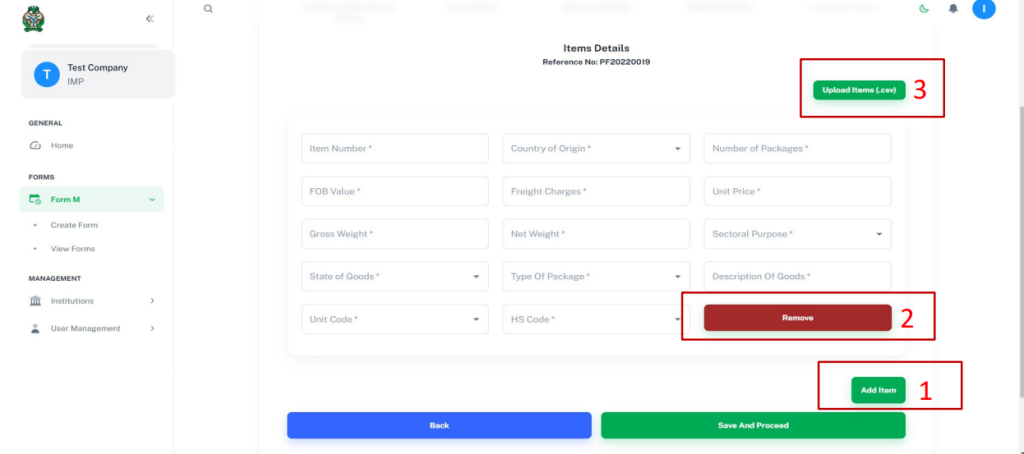
Form Creation Process – Step 3
Step Three of form creation is the Summary Details page. Kindly fill all compulsory fields on the form and click “Save and Proceed” to continue with form creation.
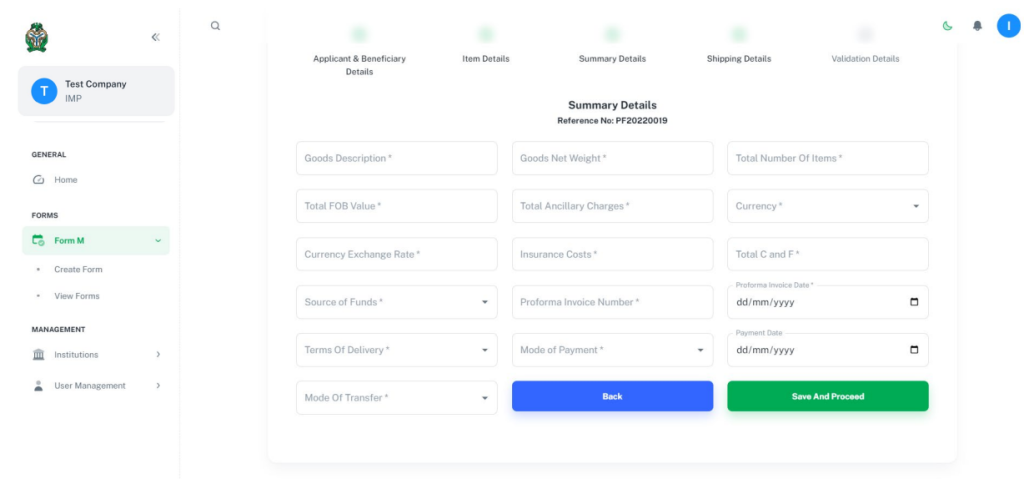
Form Creation Process – Step 4
Step Four of form creation is the Shipping Details page. Kindly fill all compulsory fields on the form and click “Save and Proceed” to continue with form creation. Note: The Expected Shipment Date field does not have to be the actual shipment date, it could be tentative date.
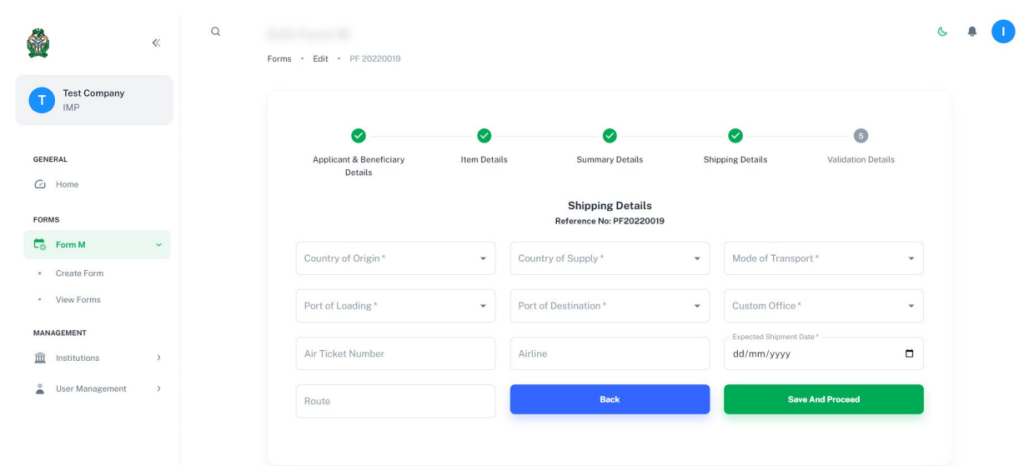
Form Creation Process – Step 5
Step Five of form creation is the Validation Details page. Kindly fill all compulsory fields on the form and click “Save and Proceed” to continue with form creation. Upon submission, a Price Verification Report is generated and sent to the Institution’s email address and is also available to the institution users on the portal for download. Note: Form cannot be edited once Report has been generated.
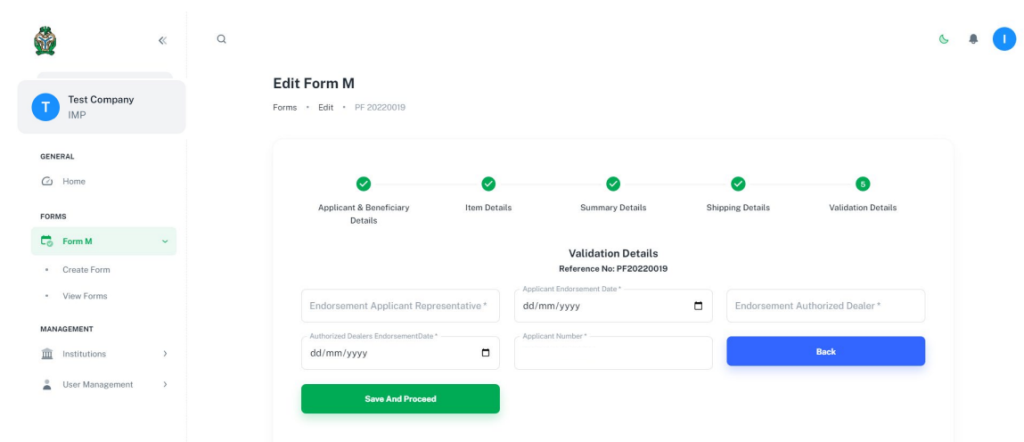
Download Form Generated XML
Go to the “View Forms” Page to view all forms created under the institution. Click on the “Download XML” button on the popover menu that is displayed. The XML File is automatically downloaded into the user’s device.

CONCLUSION
The central bank of Nigeria had in January 20222 announced use of an e-evaluator and e-invoice to replace hard copy final invoices. This electronic invoice was to be part of the documentation needed for import and export trade in Nigeria.
Furthermore, imports and exports goods with unit prices that differ more than 2.5% of the verified global checkmate prices would be allowed for Form M or Form NXP.
Thus, the price verification system is like a follow-up to the e-evaluator and e-invoice. The following are key takeaway from the PVS:
- The price verification system is supposedly meant to help streamline and regulate financial transactions and documentation in the banking sector.
- Equally, PVS generated report (PVR) will obviously reduce overpricing and ensure price accuracy of goods imported into the country.
- In addition, the PVS to curtail inflationary tendencies and drive down unnecessary demand for forex. Recall that higher dollar demands caused the naira currency to depreciate against the dollar to the lowest ebb.
- Lastly, we hope that price verification report will reduce queries on imported goods by Customs, as values are pre-verified.


